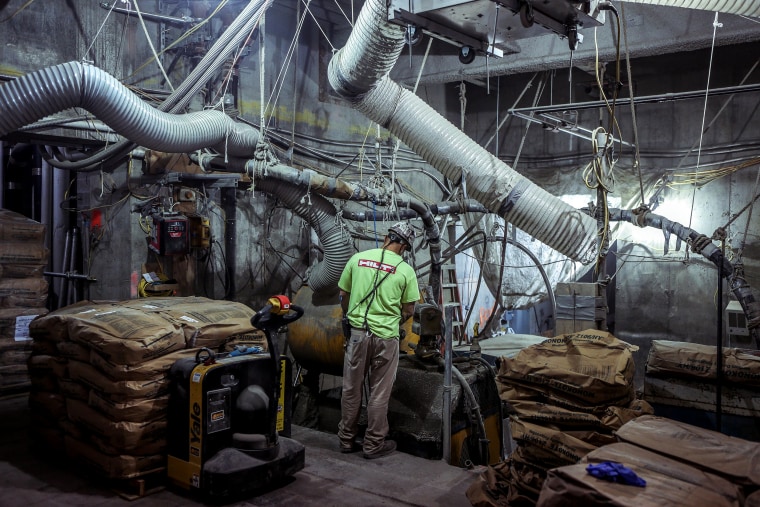He got the gig. Now it's time for the self-described "greatest jobs president God has ever created" to clock in.
Based on what is known of president-elect Donald J. Trump's nebulous policy proposals, conservative economists says that defense, construction, engineering, independent contractors, and small businesses could see real jobs creation.
But they say the "dirty jobs" class of voters who became the symbol — and the ushers — of this unconventional Republican candidate may be disappointed.
Rolling up the sleeves
No matter whether you heard Trump say he'll cut taxes "bigly" or "big league," one thing he was clear on was his plan to cut the corporate tax rate from 35 percent to 15 percent. This week, Stephen Moore, a Heritage Foundation fellow and top Trump tax plan adviser, estimated that this and other cuts, plus a new infrastructure spending program, could increase economic growth by a full percentage point. Last quarter, GDP increased at an annual rate of 2.9 percent.
Economists predict increases in defense investment across the board to update America's armed forces, from enlistment to defense contracting. It's not just the guy putting the bolt on the submarine though, but also support positions like HR and technologists.
"We understand there's going to be tax cuts, infrastructure spending, defense spending, some targeted foreign trade deals and targeted de-regulation," Steven Ricchiuto, chief economist at Mizuho Securities, told NBC News.
While cautioning that the magnitude of any of these changes is impossible to gauge because of how vague Trump's plans are, Ricchiuto said it's a decent bet that construction will see a boost. Trump has promised to fix the nation's crumbling infrastructure and he is, after all, a real estate developer. Carpenters, bricklayers, electricians, and plumbers may find themselves more in demand in a Trumpian America, along with civil, mechanical, electrical, and aerospace engineers.
Small businesses could also get a lift, benefiting from Trump's campaign promises to cut taxes and roll back financial regulations which could loosen up the low-interest loan market, said James Pethokoukis, a columnist at the American Enterprise Institute, a conservative think tank based in Washington, D.C.
Unintended consequences
But he cautioned that there are larger macro-economic forces at work that no plan, no matter how brazen or bold, can overcome.
"You can deregulate all you want, and if the market's not there, it's not there," said Pethokoukis. In other words: You can make it easier to manufacture things, but it's no good if no one is buying.
It could even have the opposite effect on jobs. Easing regulations and opening up environmentally protected areas to resource extraction could hurt prices and therefore jobs by adding to the already-existing supply glut.
For instance, the U.S. lost 195,000 jobs from 2014 to 2016 as crude oil prices crashed to a 13-year-low of $26 a barrel, according to a report by Challenger, Gray & Christmas. The job losses were mainly in the energy and industrial goods sectors.
Building walls
And Trump's plans to use high tariffs to block foreign goods and therefore drive home-grown jobs to fill the gaps could lead to higher consumer costs and rising inflation.
"This can be a good thing for some U.S. workers, who’ll see local manufacturers put up new 'Help Wanted' signs," said Gary Burtless, an economist at the left-leaning Brookings Institution. "But there are likely to be a lot more consumers who shop at Wal-Mart and Best Buy than there are workers who’ll get a new manufacturing job or see their wages climb as a result of those high tariffs."
Related: Trump USA: Steelworkers Buy Cruises, Immigrants Plan Deportation
For instance, the full unsubsidized retail cost of an Apple iPhone 7 32 GB built in China currently costs $649. If it were made in the U.S. it would cost $963.80, according to a Wall Street Journal analysis, a nearly 50 percent cost increase for consumers.
Likewise, deporting illegal immigrants and keeping more foreign workers out could open up some jobs for U.S. workers, but will increase labor costs — and with that, consumer prices.
So even if that auto or air-conditioning plant worker's job does come back from an overseas factory, he may find his new paycheck doesn't go further than the corner store.

